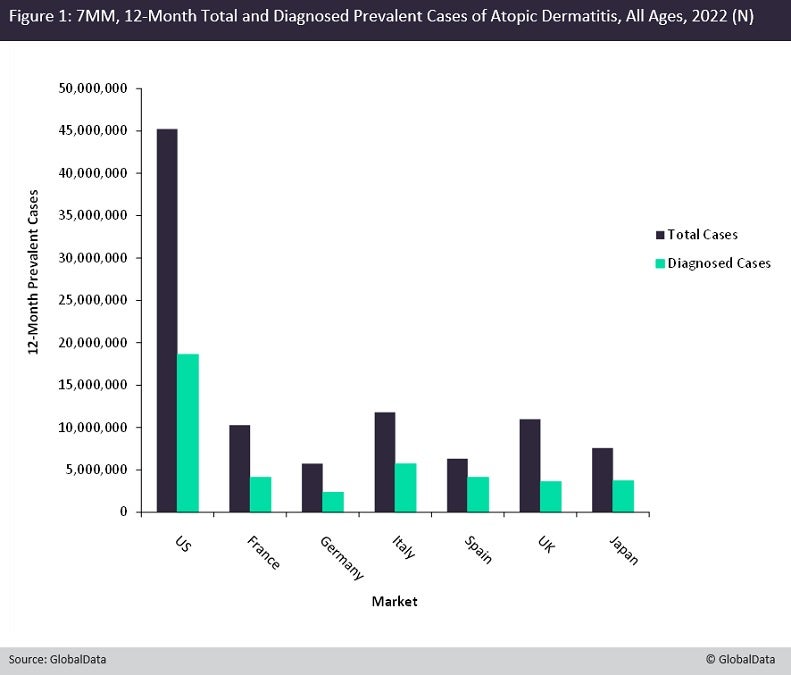Atopic dermatitis (AD) is the most common type of eczema. It is a chronic inflammatory skin condition that presents as generalised skin dryness, itch and rash. In the seven major pharmaceutical markets (7MM: the US, France, Germany, Italy, Spain, UK and Japan), GlobalData epidemiologists found that only around 40% of AD cases will be diagnosed by the end of this year, with the US experiencing the highest number of undiagnosed cases due to its large number of AD cases.
In the 7MM combined, GlobalData epidemiologists forecast nearly 100 million 12-month total prevalent cases of AD, only 42 million of which will be diagnosed by the end of the year (as shown in Figure 1). These forecast data demonstrate that around 40% of individuals with AD are diagnosed by a physician. This low diagnosis rate is being driven primarily by misdiagnosis and underdiagnosis.
According to a recent study published by Weidinger and colleagues in Dermatologic Therapy, gaps in primary care include difficulty differentiating AD from other skin disorders and low physician awareness due to a lack of well-defined diagnostic criteria and guidelines. These study findings were based on a global Atopic Dermatitis Quality of Care Initiative, which was launched in 2019 and investigated barriers to AD care. Study methods included a literature review to define challenges in AD and a survey of 32 AD centres across regions of Europe, North America, South America and Asia.
The survey helped determine good practice implementations used to address AD barriers that were identified in the literature review. The results of this study are concerning, as they indicate that underdiagnosis or misdiagnosis of AD can easily occur in the primary care setting and is likely driving the gap between diagnosed and undiagnosed cases.
The accurate and timely identification of AD cases in the primary care setting is critical to improving patient outcomes. Future efforts should prioritise addressing gaps in physician awareness and standardising AD diagnostic criteria and methods. In addition, educational programmes should aim to increase both patient and physician awareness of AD, diagnosis, assessment of severity, and disease management.


US Tariffs are shifting - will you react or anticipate?
Don’t let policy changes catch you off guard. Stay proactive with real-time data and expert analysis.
By GlobalData




